
As the temperature begins to rise and the essence of spring becomes more apparent, individuals with a constitution of Yin Deficiency (Yin Xu) may start to feel discomfort. Today, we will discuss how those with a Yin Deficiency constitution can maintain their health during spring.
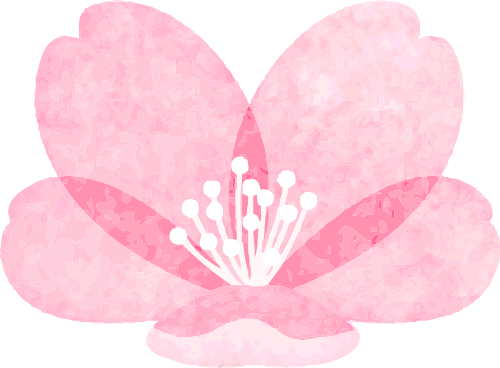
So, what exactly is Yin Deficiency?

In Traditional Chinese Medicine (TCM), Yin Deficiency refers to a condition where the body’s Yin fluids are insufficient, leading to an inability to nourish and control Yang, resulting in a series of pathological changes and symptoms. The Huangdi Neijing states: “When Yang is deficient, there is external cold; when Yin is deficient, there is internal heat.” Individuals lacking Yin fluids will exhibit signs of deficiency heat. It is important to understand that this heat is not the same as true heat caused by external factors or stagnation; it is a deficiency heat. For instance, if the balance of Yin and Yang is 100 points, and Yin decreases to 60 points, Yang appears to increase by 40 points, leading to a sensation of internal heat. Supplementing Yin to restore balance is essential to eliminate this deficiency heat. This differs from true heat, which requires cooling and purging.
To illustrate, Yin can be likened to the lubricating oil and coolant in a car engine. If these fluids are low, the engine will overheat; thus, adding more oil and coolant is necessary, rather than using a fire extinguisher.

◎ Image authorized by Baotu Network
Individuals with a Yin Deficiency constitution find it particularly challenging during spring and summer, as their internal heat is exacerbated by the external heat, further depleting their Yin. Therefore, such individuals often find it easier to cope in autumn and winter than in spring and summer.

How can we identify a Yin Deficiency constitution?
Common symptoms of Yin Deficiency include: dizziness and tinnitus (the ringing is often sharp), insomnia with vivid dreams, forgetfulness, weakness in the lower back and knees, increased sexual desire, nocturnal emissions, irregular menstruation in women (either scanty or absent), weight loss, dry throat and mouth with a constant desire for cold drinks, periodic internal heat sensations, yellow urine and dry stools, and hot palms. Interestingly, individuals with Yin Deficiency may have cold hands and feet in winter, but experience heat in their palms and soles during summer. Night sweats, flushed cheeks, a red tongue with little or no coating, and a thin, rapid pulse are also indicative of Yin Deficiency.
I particularly emphasize the importance of tongue diagnosis. Many practitioners may misdiagnose due to insufficient diagnostic methods, so I urge everyone to pay close attention to tongue diagnosis, as it provides the most direct reference for identifying Yin Deficiency.
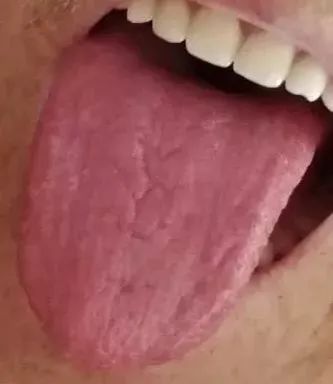
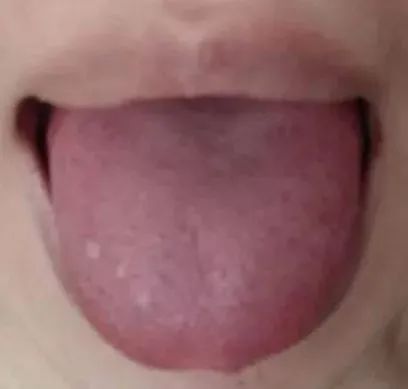
Yin Deficiency Tongue Manifestation
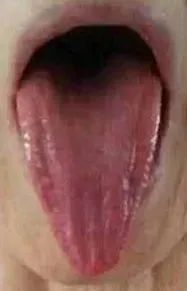

What causes Yin Deficiency?
This is quite complex:
01
Some Yin Deficiency arises after febrile diseases or chronic illnesses that deplete Yin fluids.
02
Some is due to excessive emotional stress, leading to excessive liver fire that consumes Yin fluids.
03
Some results from excessive sexual activity, depleting kidney essence and ultimately causing Yin Deficiency.
04
Some are caused by the overconsumption of warming and drying foods, which exhaust Qi and lead to Yin Deficiency; for example, individuals who enjoy spicy foods may be more prone to Yin Deficiency.
05
Some result from staying up late, which depletes Yin.
All these factors contribute to the depletion of Yin fluids, leading to a lack of nourishment in the body.

Many friends ask me if different constitutions can coexist.
Yes, Yin Deficiency can coexist with Qi Deficiency, Blood Deficiency, Blood Stasis, Yang Deficiency, Yang Excess, and Essence Deficiency, often existing simultaneously or being causally related. This can manifest as Qi and Yin Deficiency, Yin and Blood Deficiency, both Yin and Yang Deficiency, Yin Deficiency with Yang Excess, Yin and Essence Deficiency, Yin Fluid Deficiency, or Yin Deficiency with Internal Dryness, which can further develop into pathological changes such as Yin Collapse or Wind Movement.

Is there a sequence in addressing these issues?
Generally, there is no specific order; upon identifying Yin Deficiency, one should nourish Yin while simultaneously addressing any deficiencies and clearing any obstacles. For instance, if Yin Deficiency is accompanied by Blood Stasis, one should nourish Yin while also promoting blood circulation.
Individuals with Yin Deficiency may ultimately experience Yin Deficiency in various organs, such as Lung Yin Deficiency, Liver and Kidney Yin Deficiency, Stomach Yin Deficiency, Spleen Yin Deficiency, and Heart Yin Deficiency. However, for the general public and enthusiasts, discussing Yin Deficiency as a whole is sufficient; as long as you nourish Yin, all organ Yin will benefit, and the overall approach is correct, leading to improvements in health. Some individuals seek medical advice for what they believe are serious illnesses, when in fact, they may simply have a case of Yin Deficiency. Western medical diagnoses often reflect the results of Yin Deficiency. Instead of seeking numerous consultations, it is more beneficial to analyze one’s constitution; if it is Yin Deficiency, focusing on nourishing Yin can lead to the resolution of symptoms.
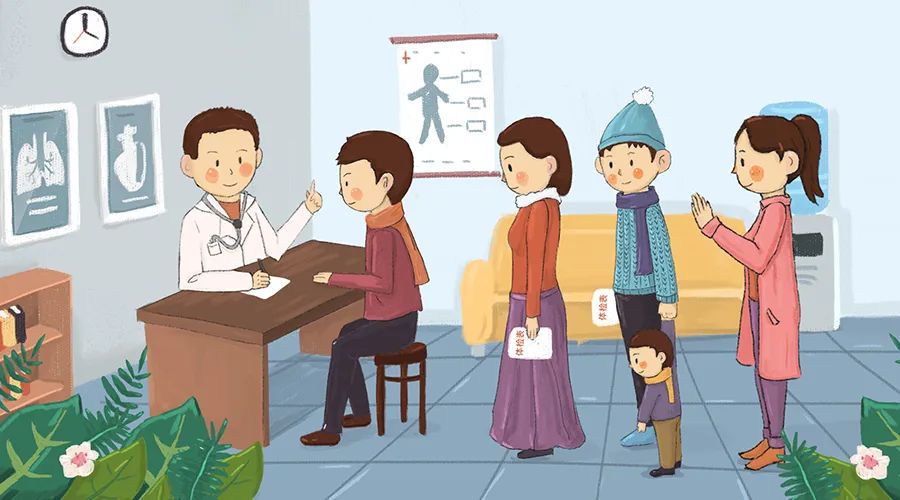
◎ Image authorized by Baotu Network
Some friends, who are completely unfamiliar with TCM, come to me with strange symptoms, and upon examining their tongues, I find they have Yin Deficiency. Using the simplest methods to nourish Yin, their health is restored immediately. Therefore, I believe it is essential for everyone to understand the basics of TCM constitution.

What are the herbs for nourishing Yin?
It is quite simple; the primary herbs include Shu Di Huang (Rehmannia Glutinosa), Shan Yao (Chinese Yam), Gou Qi Zi (Goji Berries), and Huang Qi (Astragalus Root). These herbs are not primarily Yin nourishing but are essence-replenishing. Shu Di Huang and Gou Qi Zi replenish kidney essence, Shan Yao replenishes the essence of the spleen and lungs. This concept was discussed by ancient scholars in relation to the Six Flavor Rehmannia Decoction, which replenishes the essence of the five organs. Therefore, these herbs are slightly warming; strictly speaking, they are not Yin nourishing but essence-replenishing, which in turn generates Yin and Yang. Thus, combining essence-replenishing herbs with Yin nourishing herbs enhances their effectiveness.
Yin nourishing herbs include Sheng Di Huang (Raw Rehmannia), Sha Shen (Adenophora Root), Mai Dong (Ophiopogon), Tian Men Dong (Asparagus Root), Shi Hu (Dendrobium), Yu Zhu (Polygonatum), Nu Zhen Zi (Ligustrum), Han Lian Cao (Eclipta), and Gui Ban (Tortoise Shell). These herbs are commonly used and pose no issues for individuals with Yin Deficiency.
There are also many TCM formulas for nourishing Yin, such as Six Flavor Rehmannia Decoction, Er Zhi Wan, and Yi Guan Jian, which everyone can explore.
In terms of diet, individuals with Yin Deficiency can consume cooling foods such as sesame, glutinous rice, mung beans, lotus root, malan head, cabbage, black fungus, white fungus, tofu, sugar cane, plums, peaches, watermelon, cucumber, lily, yam, squid, soft-shelled turtle, abalone, crab, milk, oysters, clams, and jellyfish. These foods are generally sweet, cold, and cooling, and can be combined with Yin nourishing herbs to create medicinal dishes.
Those with Yin Deficiency and excess heat should limit spicy foods and fried, roasted, or grilled items, and control their intake of beef, lamb, and chicken, as these warming foods should be consumed in moderation.
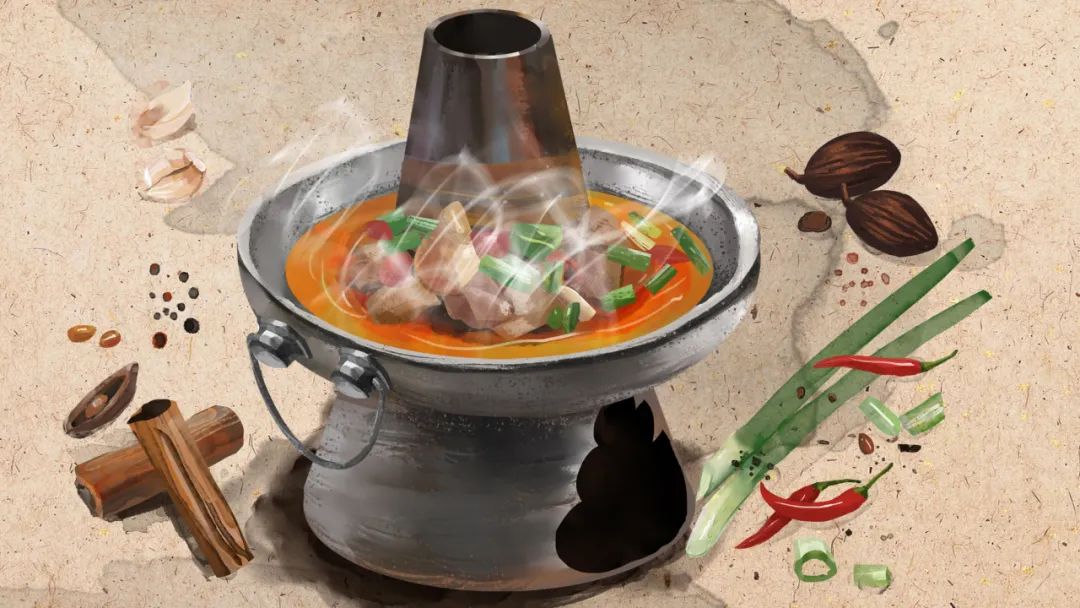
◎ Image authorized by Baotu Network
During spring and summer, individuals with Yin Deficiency should avoid excessive sun exposure and refrain from engaging in strenuous activities in extreme heat, as excessive sweating can severely damage Yin and even lead to critical conditions of Yin collapse.
Additionally, individuals with Yin Deficiency should manage their emotions, as Yin Deficiency can easily lead to irritability, and poor temper can further exacerbate Yin Deficiency. Therefore, maintaining a calm and peaceful mindset, and avoiding impulsive behavior, will benefit the body. Ultimately, addressing the root of Yin Deficiency through proper nourishment can also help regulate one’s temperament, providing a beneficial pathway for psychological adjustment through physical health.
— THE END —
Related Articles
☼ What should individuals with Yin Deficiency do in spring?
☼ Health Food Corner | How to determine your Yin Deficiency constitution?
☼ Effective herbs for treating Yin Deficiency with excess heat — Zhi Bai Di Huang Wan
For more related articles, please search within our public account.
☼ Article Search Guide
❀ Article by Luo Dalun
❀ Edited by Zi Ye
❀ Cover image authorized by Baotu Network
❀ All images in the article are cited; please do not use without authorization.


Essay Contest
If you have a story related to TCM, please write it down and submit it to us at any time. Articles should be submitted in Word document format to our email.
Submitted articles must be original and include your WeChat nickname, name, phone number, address, and other contact information. After selection, we will contact the authors for authorization to publish in our channel, and once published, we will send you a signed book by Dr. Luo!~
Thank you for your positive feedback; we look forward to you sharing your story with us and more readers, allowing more people to experience the charm of Chinese culture.

Dr. Luo’s official WeChat public account has the following four, please scan the QR code to follow; all others are imitations, please do not be deceived!

Dr. Luo Dalun Channel
WeChat ID: luodalunpd
Dalun Academy
WeChat ID: Dalun_sy


Dalun Parenting Talk
WeChat ID: dalun_yes
Dr. Luo Dalun
WeChat ID: Drluodalun

🔹 The copyright of original articles in this public account belongs to this account. For reprints, please leave a message to the editor and indicate the source. Commercial use is prohibited.
🔹 Articles reprinted by this public account are for learning and communication purposes only and fall within the scope of fair use. If there are errors in the attribution of images, data sources, or text copyright, please inform the editor, and corrections or deletions will be made immediately.
🔹 This public account holds the portrait rights of Dr. Luo Dalun. Unauthorized use will result in legal action.
🔹 This public account is legally supported by Beijing Zhongzhe (Shenyang) Law Firm, and will pursue legal responsibility for any unauthorized reprints, commercial use, and refusal to delete posts after warnings.

